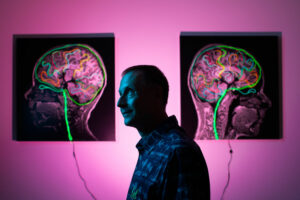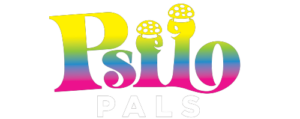Notable Elements
Revolutionizing Mental Health Care: Discover how psychedelic medicine, including psilocybin and MDMA, is transforming the treatment of mental health disorders like depression and PTSD.
Beyond Traditional Treatment: Explore how psychedelic therapies offer profound, long-lasting relief from mental health issues by addressing root causes, not just symptoms.
Psychedelics in Addiction Therapy: Uncover the potential of psychedelic-assisted therapy in providing deep-seated emotional healing for addiction, beyond traditional treatment methods.
Ensuring Safety in Psychedelic Medicine: Learn the importance of medical supervision, appropriate settings, and follow-up care for safe and effective psychedelic treatments.
Changing Perceptions and Legislation: Understand the need for shifting cultural attitudes and updating legal frameworks to integrate psychedelics into healthcare.
Comprehensive Healthcare Framework: Find out how a holistic framework, including trained healthcare providers and regulated psychedelic protocols, is crucial for this integration.
Psychedelic Medicine’s Economic Impact: Explore the potential for psychedelic medicine to reduce long-term healthcare costs through improved mental health outcomes.
Empowering Patients in Healing: Learn how psychedelic therapy involves active patient engagement, promoting personal growth and empowerment in the healing process.
Introduction
In recent years, there has been growing interest in the potential therapeutic effects of psychedelic medicine. Psychedelic substances such as psilocybin (found in magic mushrooms), LSD, and ayahuasca have been used for centuries in various cultures for spiritual and healing purposes. However, due to their association with the counterculture movement of the 1960s and subsequent criminalization— research on their medical potential was halted.

Now, a resurgence of scientific studies and clinical trials is showing promising results in the treatment of mental health disorders such as depression, anxiety, addiction, and PTSD. As the research advances and public perception shifts, the question arises: should psychedelic medicine be integrated into traditional healthcare systems?
Yes, because there are several potential benefits of integrating psychedelic medicines in healthcare.
Benefits of Integrating Psychedelic Medicines in Healthcare
- Mental health treatment: Psychedelics have shown promising results in treating various mental health conditions such as depression, anxiety, PTSD, and addiction. They have the potential to provide long-lasting relief even after just a few sessions, compared to conventional treatments that often require long-term medication.
- Increased effectiveness: Psychedelic-assisted therapy has been reported to be more effective than conventional therapy alone. Studies have shown that psychedelic medicines can enhance the therapeutic process by facilitating self-reflection, promoting introspection, and increasing psychological breakthroughs.
- Reduced healthcare costs: Improved mental health outcomes through psychedelic-assisted therapy may result in reduced healthcare costs in the long run. If patients experience long-lasting benefits and avoid relapses, it could potentially reduce the need for ongoing medication and therapy, leading to cost savings for both patients and the healthcare system.
- End-of-life care: Psychedelic medicines have shown potential to improve the well-being and psychological distress associated with end-of-life care. They can help individuals facing death to find meaning, reduce anxiety, and enhance their overall quality of life during this challenging time.
- Spiritual well-being: Psychedelics have been used in various spiritual and religious practices for centuries. Integrating them into healthcare may allow individuals to explore and address spiritual concerns, resulting in a more holistic approach to well-being.
- Neuroplasticity and neural regeneration: Some studies suggest that certain psychedelics can promote neuroplasticity and neural regeneration. This could have potential implications for neurodegenerative disorders and brain injuries, although more research is needed in these areas.
- Patient empowerment and engagement: Psychedelic therapy often involves an active role from the patient, encouraging personal growth and self-awareness. This can result in a sense of empowerment and engagement in the healing process, leading to better outcomes.
Research and Studies
The potential benefits of integrating psychedelic medicine into healthcare are multifold. First and foremost, these substances have the potential to revolutionize the treatment of mental health disorders that have proven resistant to traditional therapies. For example, studies have shown that psilocybin-assisted therapies may lead to profound and long-lasting reductions in depression and anxiety symptoms in individuals with treatment-resistant depression. This breakthrough could provide relief for millions of people suffering from these debilitating disorders.
Furthermore, psychedelic medicine offers a unique approach to healing that focuses on the root causes of mental health issues rather than purely symptom management. Traditional medicines often treat the symptoms, but psychedelics allow patients to explore their unconscious mind and gain insight into the underlying issues that contribute to their suffering. By addressing the root causes, patients have the opportunity for profound personal growth and lasting change.
Additionally, psychedelic medicine has the potential to transform the treatment of addiction. Traditional approaches to addiction often focus on suppressing cravings or substituting one substance for another. However, psychedelic-assisted therapy can help individuals confront the deep-seated emotional trauma and unresolved issues that contribute to their addictive behaviors. By addressing these underlying causes, individuals may experience profound healing and a reduced risk of relapse.
Precautions
Before integrating psychedelic medicines into a healthcare routine, it is important to have a comprehensive understanding of their effects, the appropriate dosage, potential risks, and legal considerations. Here are some key things to know:
- Research and Education: Psychedelic medicines, such as psilocybin (found in magic mushrooms) and MDMA (commonly known as ecstasy), have shown promising results in treating mental health conditions like depression, anxiety, and post-traumatic stress disorder (PTSD). However, it is crucial to thoroughly research the current scientific literature and stay updated on ongoing clinical trials to understand their potential benefits and risks.
- Medical Supervision: Psychedelic medicines should be used under the guidance and supervision of trained healthcare professionals experienced in psychedelic-assisted therapies. They can provide proper assessment, guidance, and support throughout the treatment process to ensure safety and maximize therapeutic benefits.
- Set and Setting: The therapeutic use of psychedelic medicines typically involves carefully curated settings, including a comfortable and safe environment, supportive therapists or facilitators, and appropriate psychological preparation. The patient’s mindset, intentions, and emotional readiness play a significant role in maximizing the therapeutic potential of these medicines.
- Integration and Follow-Up: Integrating psychedelic experiences into a healthcare routine often involves an integration period after the acute effects of the medicine have worn off. It may include follow-up therapy sessions, integration circles, or practices like meditation and journaling to reflect on the experience and integrate the insights gained for long-term growth.

Risks Associated
Despite the potential benefits, there are also significant challenges and considerations when integrating psychedelic medicine into traditional healthcare. One main concern is the potential for misuse or abuse of these substances. Psychedelics are powerful tools to be used in a controlled and supportive environment to ensure safety and maximize therapeutic potential. Proper training and supervision of healthcare professionals are essential to mitigate potential risks.
Legislation and regulatory frameworks pose another challenge. Many psychedelics are classified as Schedule I drugs, which restricts their availability and research possibilities. This classification is based on an outdated and inaccurate understanding of these substances and hinders progress in exploring their medical potential. Changing drug policies to allow for a more comprehensive and evidence-based approach to psychedelic medicine is crucial for integration into healthcare.
Furthermore, integrating psychedelic medicine into traditional healthcare requires a shift in mindset and cultural attitudes toward these substances. Public perception and stigma surrounding psychedelics must change to allow for open and informed discussions regarding their potential benefits. Education initiatives that provide accurate information about risks and benefits, as well as success stories, will be instrumental in challenging the ingrained biases against psychedelic medicine.
To successfully integrate psychedelic medicine into traditional healthcare, a comprehensive framework is required. This framework should include guidelines for training healthcare providers, regulations for the production and distribution of psychedelics, and protocols for administration in clinical settings. Collaboration between researchers, healthcare professionals, policymakers, and the general public is essential to ensure a responsible and evidence-based approach.
Also Read : Psilocybin’s Impact on Anxiety and Wellness
Conclusion
The integration of psychedelic medicine into traditional healthcare holds great promise for revolutionizing the treatment of mental health disorders and addiction. The therapeutic potential of these substances, when used in a controlled and supportive environment, is significant.
However, to ensure the safe and effective integration of psychedelic medicine into healthcare, legislation, regulation, and cultural attitudes must be addressed. By embracing this groundbreaking approach, we can transform the lives of millions and provide hope for those who have not found relief through conventional treatments.

Hi! I’m Jacob Hawthorne, a passionate medical student dedicated to exploring the fascinating world of psychedelics, particularly magic mushrooms (commonly known as shrooms). With a deep interest in their therapeutic potential and profound effects on the human mind, I aim to provide accurate and evidence-based information about shrooms in the Canadian context.

